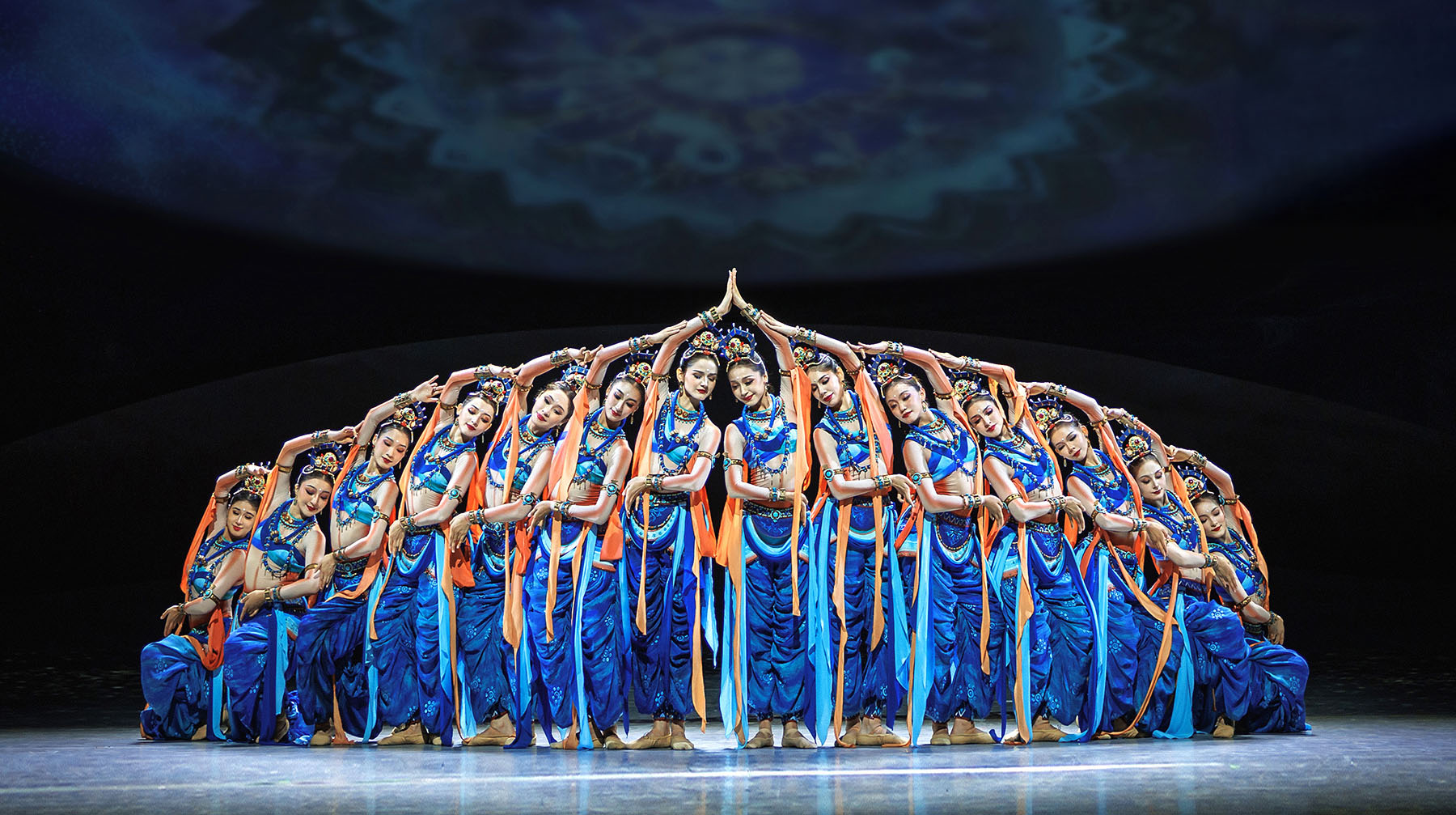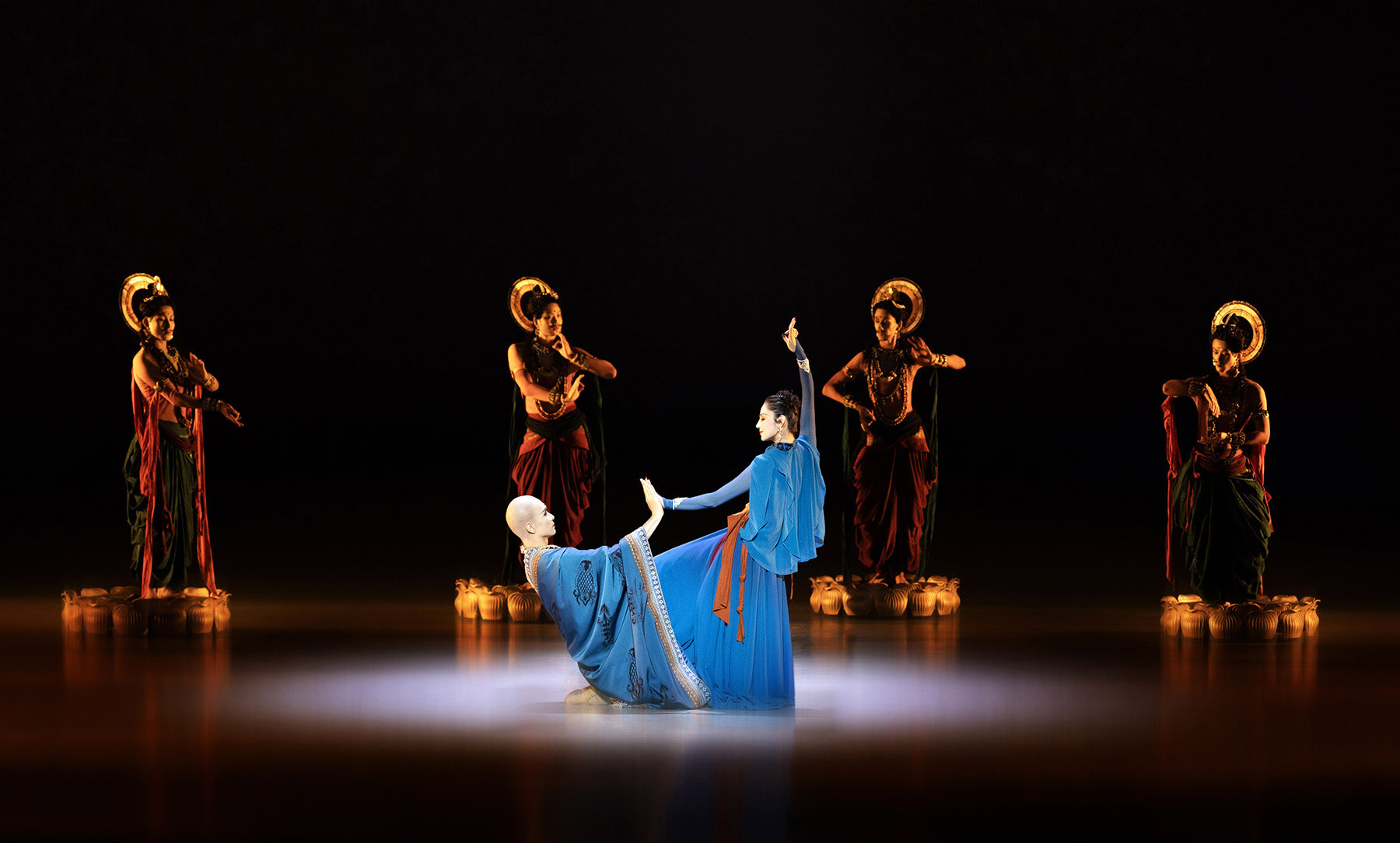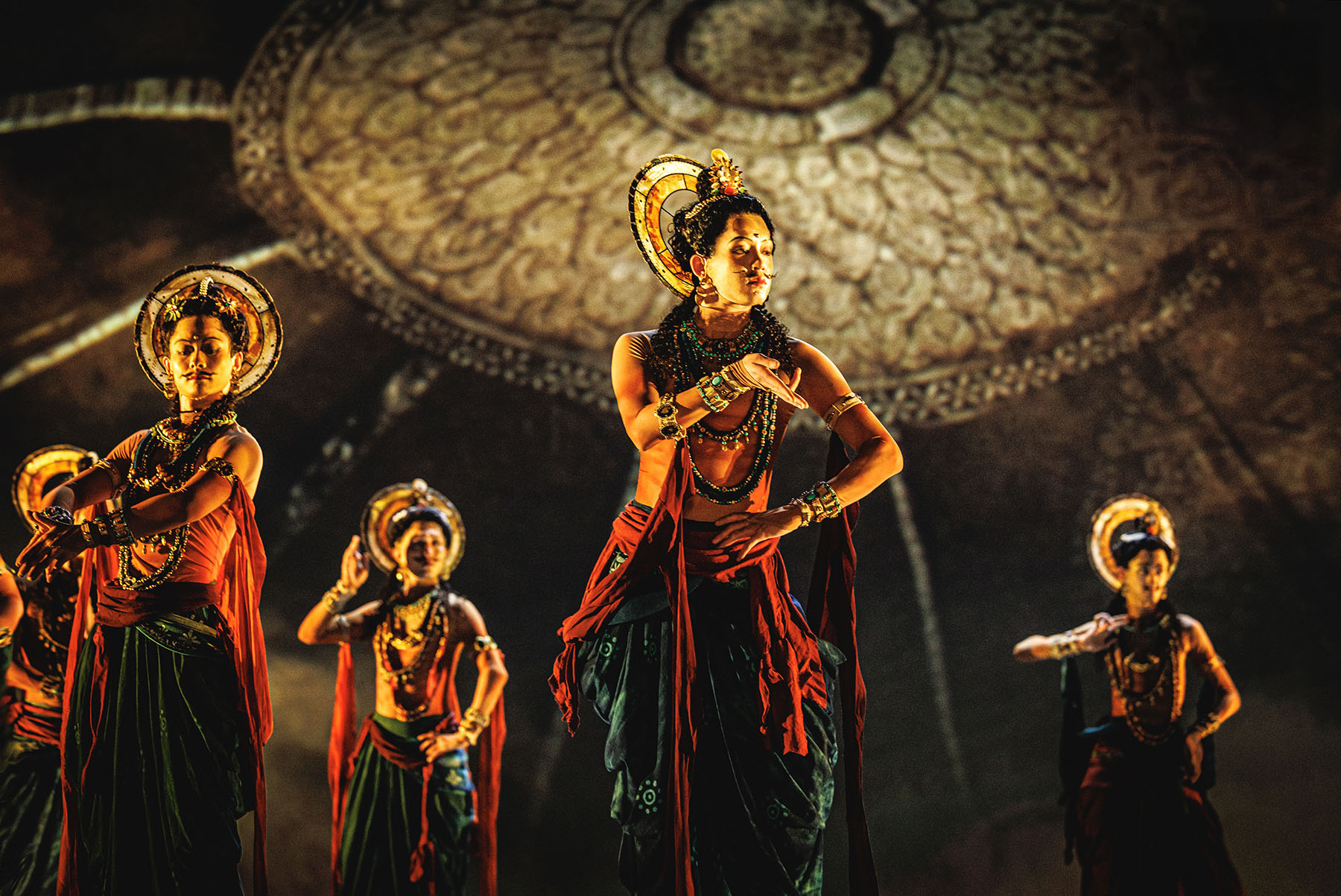New dance production, premiering in November, presents the story of one of China's greatest continuing influencers in the translation of scriptures from Sanskrit to Chinese, Zhang Kun reports.

A new dance production, presenting the life story of the legendary Buddhist scholar Kumarajiva (343-413), one of the greatest Sanskrit-to-Chinese translators of Buddhist scriptures, will soon take to the stage in Shanghai.
A highlight of the upcoming China Shanghai International Arts Festival, Qiuci will hold its world premiere from Nov 7 to 9 at the Shanghai Culture Square.
Qiuci, or Kucha, located in the west of today's Kucha county in the Xinjiang Uygur autonomous region, was a Silk Road kingdom that merged the Eastern and Western cultures.
READ MORE: Reimagining a legend
Kumarajiva, one of the most important figures who introduced Buddhism to China, was born there. His father was an Indian monk, and his mother was a member of the Qiuci royal family.
He was raised in the tradition of Hinayana Buddhism and later devoted himself to studying the Mahayana tradition — both schools of Buddhism that varied in interpretation and undertaking — and gained fame as a Buddhist scholar.
The 4th century was marked by political chaos in China. The Northern part became fragmented into warring states, where rulers fought over land, and scholars like Kumarajiva became pawns in their conflicts. Kumarajiva was finally freed and sent east to Chang'an, today's Xi'an, Shaanxi province, in 401.
In Chang'an, Kumarajiva was widely respected by the court, and Buddhists, young and old, flocked to him. The emperor, who looked to Kumarajiva as his teacher, gave him the title of guoshi, or national preceptor. Kumarajiva led a team of translators supported by the imperial court. He and his disciples translated a series of Buddhist scriptures and systematically introduced the philosophical ideas of the Mahayana school of Buddhism to China, which has continued to influence Chinese culture.

Studying the life story and spiritual journey of Kumarajiva "gave me much spiritual comfort, and helped me regain inner peace," says Han Ziyong, the playwright of the dance production. "We are constantly anxious and stressed in today's fastpaced modern world. Because of Kumarajiva's dedication, perseverance, and philosophy, I found a longlost cultural hero."
Unlike Monk Xuanzang (602-664), whose travels to India provided inspiration for Journey to the West, one of China's greatest novels, Kumarajiva is less well-known.
"He made a great impact on Chinese culture," Han says. In writing the script for the dance production, he hopes to bring audiences closer to Kumarajiva's life, as well as the culture and beauty of his hometown, Qiuci.
"I used to stand by the statue of Kumarajiva. The beautiful curve of his back was captured by a golden lining at sunset," he says. "I felt as though he was a grain of sand, blown by the winds of fate, all the way to Chang'an.
"I have spent almost 50 years working and writing in Xinjiang. This time, I want to delve deep into the secret realms of the local culture. Through the story of Kumarajiva, I hope to uncover the continuity, innovation, unity, inclusiveness, and peacefulness of Chinese culture, and reveal the nation's diverse cultural essence."
To Tong Ruirui, the choreographer of the production, Qiuci holds special significance in China's music and dance history.
Beginning in the late 3rd century, a series of grottoes were carved into Qiuci's cliffs. Murals found in these grottoes depict ancient Qiuci, vividly illustrating the cultural exchanges along the ancient Silk Road.
The music and dance scenes depicted in the murals found in the Kizil Caves are particularly beautiful, reflecting an important aspect of Qiuci culture.

In the 5th century, the music and dance of Qiuci gained great prominence in the region. After the Qiuci kingdom ended, many of its musicians and dancers moved to the Central China Plains, which marked the beginning of Qiuci's large-scale eastward transmission of music and dance.
"We want to bring to life the most striking and unique beauty of the dances depicted in the Kizil Caves, such as the dance of the 13 deities, authentically presenting its colors and forms," Tong says. The choreographer is most recently known for her successful adaptation of Dream of the Red Chamber, a ballet production by the National Ballet of China.
"People with some knowledge about dance will understand that classical Chinese dance is all about the process and motions. It is never just a still pose."
Traditionally, folk dances tend to highlight passionate expressions and dazzling skills. To create a contemporary dance theater production with powerful storytelling, Tong invited various dance coaches, choreographers and theater directors to train the dancers in ballet, modern dance, and theatrical performance over six months, before the show's rehearsals began.
ALSO READ: On-site museum takes closer look
Dancer of Uygur ethnic group Mayire Aimaitijiang plays the mother of Kumarajiva in the show. The 38-year-old dancer says, instead of creating a character, she believes, "I've shouldered a mission."
With her performance, she hopes to break through the limitations of traditional folk dance and merge ancient culture with modern vitality through comprehensive dance expression. "I want audiences to see that the dance from Xinjiang is not just passionate and exuberant but also has profound cultural depth."
Tong has presented several of her creations at the Shanghai International Arts Festival in the past and served as a board member for the Rising Artists Works project, an initiative dedicated to promoting emerging artists.
By premiering Qiuci in Shanghai, "I hope to take advantage of the festival and share the story of the ancient Silk Road with the world," she says.
Contact the writer at zhangkun@chinadaily.com.cn


